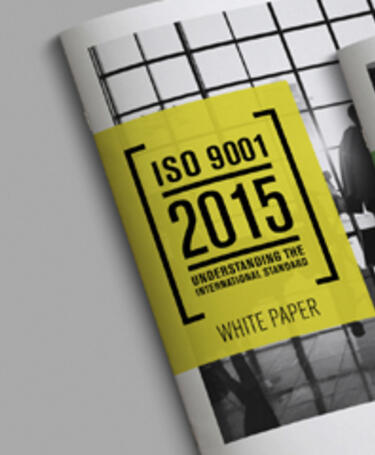
The pitfalls of failing to prioritise quality
Progress indicator
Trish Faulkner Pratt, CQP MCQI, reflects on the value of integrating ISO 9001 in business operations and the negative consequence of neglecting standards.
During my early years in the quality profession, quality management was seen as a process belonging to the manufacturing industry where all data could be quantified to show areas of concern or improvements. When the BS5750 standard appeared, companies saw a shift toward processes and procedures, with the aim to ‘document what you do’. However, this encouraged procedures for everything in the organisation and made it easy to lose sight of team involvement and client satisfaction. The procedures became a check list that created non-conformances rather than best practice. It did not foster quality assurance.
The standard ISO 9001:2000 showed a path forward. It encouraged the seven principles of customer focus, leadership, engagement of people, process approach, improvement, evidence-based decision-making and relationship management. It provided guidance on improving any organisation, regardless of its sector and staff size. The standard has been adapted further through the years with ISO 9001:2008 and now, ISO 9001:2015.
I completed a degree in quality management at the age of 22 and felt that it was difficult to put theory into practice when I entered the ‘corporate’ world. I found that larger organisations would delegate quality to front-line staff then leave them alone to get on with their responsibilities. It was an experience that was echoed by many colleagues.
A typical scenario in such an environment would result in disingenuous actions. One week before audit, there would be a flurry of activity — items being created, employees primed with information, and non-conformances closed as top management finally took action after listening to the concerns of quality professionals. Unfortunately, this was not due to management having a conscience or a sudden urge to get involved. It was about ensuring that the company’s ISO certificate stayed on the wall.
The standard ISO 9001:2000 showed a path forward. It encouraged the seven principles of customer focus, leadership, engagement of people, process approach, improvement, evidence-based decision-making and relationship management.
As years passed, I found these organisations lost clients, money, reputation and eventually closed down or were broken up and sold off; all because they lost sight of the elements that actually made up the business.
Many of my friends opened businesses and sought my advice. I told them to put the ISO standards in place, follow them and, more essentially, lead from the top. If they weren’t interested in standards, then why would their employees be?
I taught them about controlling risk coming into and out of their business. It doesn’t matter if there is only one person or a million people in a business, the process will always be the same. You need to sell your business to get work (sales); create what you have agreed to sell (contract); enhance skills and have regular internal meetings (HR and communication); ensure you are paid (accounts); comply with the law (health and safety, environment and financial); keep day-to-day business organised (administration); check all processes regularly by auditing what you are doing, who is doing it and who is contributing; see complaints as opportunities for improvement (quality); and keep your client close to understand their specific requirements and needs; and regularly ask them for feedback (service). If you can do this you can lead a successful business. If you do this as standard practice, you have already complied with ISO 9001 — and that is how it should be!
ISO 9001 or any ISO standard should be a checking document. If followed, you will have ensured that the risk to the business is minimal and whoever is sitting on top has the right people in the right jobs and knows exactly what is going on in their business.
It is such a shame organisations that fail to prioritise quality cannot see the real importance in following the ISO standards daily. It is not just a certificate required to get on tender lists, but the key to operating a successful business.
Trish Faulkner Pratt, CQP MCQI, is a business systems manager at Weatherproofing Advisors.
Quality World

Get the latest news, interviews and features on quality in our industry leading magazine.


